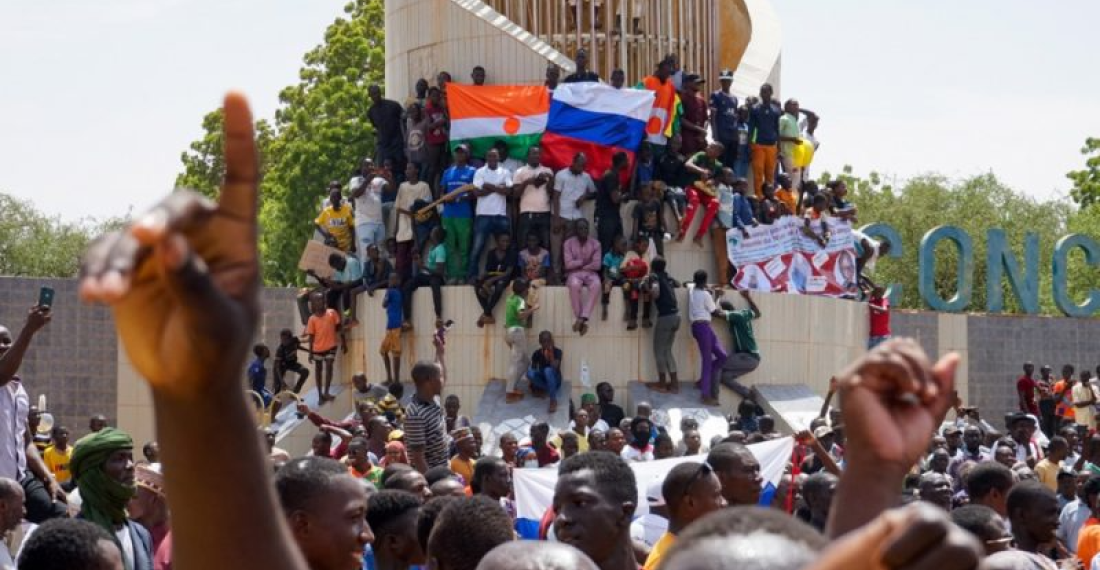National leaders of West Africa's regional ECOWAS group on Sunday (30 July) imposed sanctions on the leaders of a coup that began unfolding in Niger on Wednesday (26 July). They also threatened military action against Niger if the ousted President Mohammed Bazoum is not reinstated within a week.
Reacting to what is the Sahel region's seventh coup in recent years after an emergency summit in Nigeria, ECOWAS announced that borders with Niger would be closed, commercial flights banned, financial transactions halted, national assets frozen and aid ended. The communiqué also said that "force" may be used if coup leaders do not reinstate President Bazoum before the deadline.
U.S. Secretary of State Antony Blinken on Sunday released a statement saying that the U.S. joins "join ECOWAS and regional leaders in calling for the immediate release of President Mohamed Bazoum and his family and the restoration of all state functions to the legitimate, democratically-elected government."
Pro-coup protesters in the capital Niamey also burned French flags and attacked the embassy, drawing tear gas from police. Images showed fires at the embassy walls and people being loaded into ambulances with bloodied legs.
Global powers and regional groupings condemn coup, but welcomed by Russian mercenary group leader
The military coup in Niger has been widely condemned by neighbours and international partners including the United States, the United Nations, the African Union, the European Union and former colonial power France, all of whom have refused to recognise the new leaders led by General Abdourahamane Tiani.
Niger has been a key ally in Western campaigns against insurgents linked to al-Qaeda and Islamic State in the Sahel, and there are concerns that the coup could open the door to greater Russian influence there. Thousands of French troops were forced to withdraw from neighbouring Mali and Burkina Faso following coups there.
Yevgeny Prigozhin, the leader of the Russian Wagner mercenary group understood to have a large presence in a number of African countries, commented on Thursday, "What happened in Niger is nothing other than the struggle of the people of Niger with their colonisers. With colonisers who are trying to foist their rules of life on them and their conditions and keep them in the state that Africa was in hundreds of years ago."
Sunday's ECOWAS communiqué thanked nations in line with the bloc's stance but "condemned the pronouncement of support by foreign governments and foreign private military contractors."






